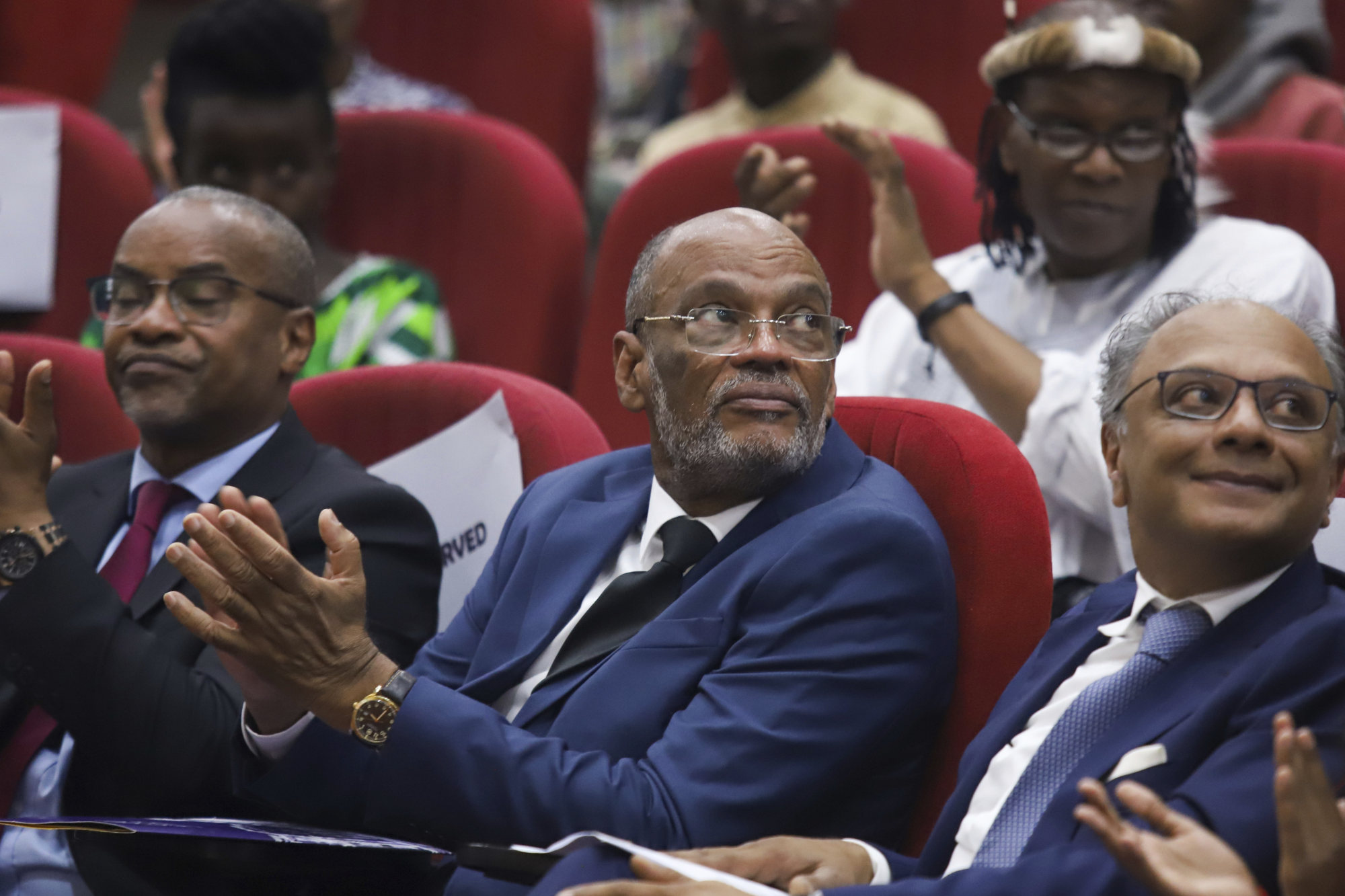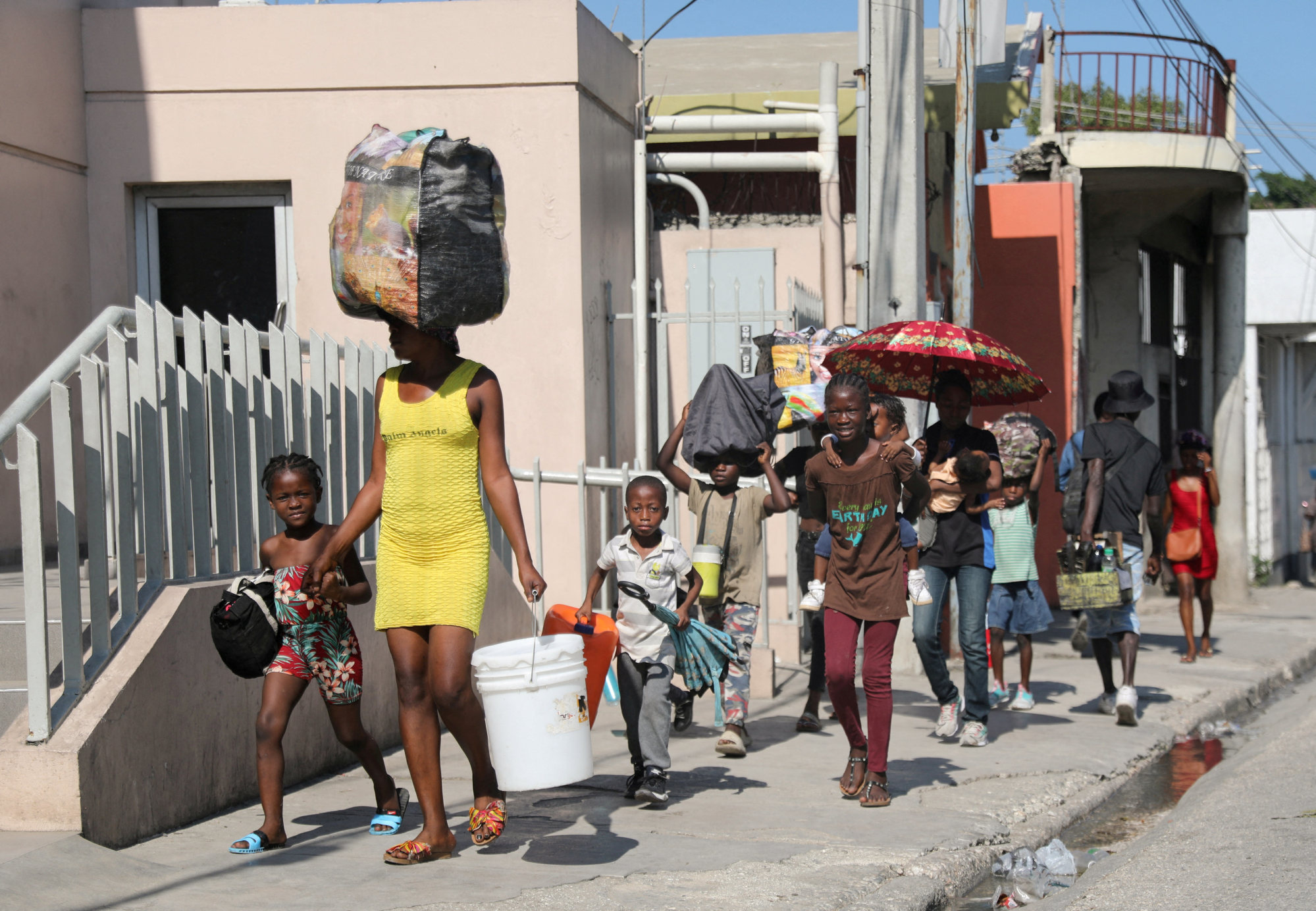“This airlift of personnel into and out of the embassy is consistent with our standard practice for embassy security augmentation worldwide, and no Haitians were on board the military aircraft,” according to the Southcom statement.

In many cases, non-essential staff can include the families of diplomats, but the embassy had already ordered departure for non-essential staff and all family members in July. The staff members ferried out of the embassy may have simply been rotating out, to be refreshed by new staff.
Haiti’s embattled prime minister, Ariel Henry, travelled recently to Kenya to push for the UN-backed deployment of a police force from the East African country to fight the gangs. But a Kenyan court ruled in January that such a deployment would be unconstitutional.
Henry, who is facing calls to resign or form a transitional council, remains unable to return home. He arrived in Puerto Rico on Tuesday after he was unable to land in the Dominican Republic, which borders Haiti.
‘People are desperate’: Haiti runs out of food and water amid gang violence
‘People are desperate’: Haiti runs out of food and water amid gang violence
On Saturday, the office of Dominican President Luis Abinader issued a statement saying that “Henry is not welcome in the Dominican Republic for safety reasons”. The Dominican Republic, which shares the island of Hispaniola with Haiti, has closed its land border.
“Given the current situation, the presence of the Haitian prime minister in the Dominican Republic is not considered appropriate,” according to the statement, adding that “this decision reflects the firm position of the Dominican government to safeguard its national security and stability.”
The statement described the security situation in Haiti as “totally unsustainable” and said that it “poses a direct threat to the safety and stability of the Dominican Republic”.
The statement predicted “the situation could deteriorate even further if a peacekeeping force is not implemented urgently to restore order”.

Members of the Caricom regional trade bloc have been trying for months to get political actors in Haiti to agree to form an umbrella transitional unity government.
Caricom said on Friday that while regional leaders remain deeply engaged in trying to bring opposition parties and civil society groups together to form a unity government, “the stakeholders are not yet where they need to be”.
“We are acutely aware of the urgent need for consensus to be reached,” according to the statement. “We have impressed on the respective parties that time is not on their side in agreeing to the way forward. From our reports, the situation on the ground remains dire and is of serious concern to us.”
In February, Henry agreed to hold a general election by mid-2025, and the international community has tried to find some foreign armed force willing to fight gang violence there.
Caricom has also pushed Henry to announce a power-sharing, consensus government in the meantime, but the prime minister has yet to do so even as Haitian opposition parties and civil society groups are demanding his resignation.
It was unclear whether Henry would be in Jamaica for the Caricom meeting.
Haiti gangs threaten civil war as PM faces pressure to quit
Haiti gangs threaten civil war as PM faces pressure to quit
“The Brothers of the Sacred Heart … is relieved by the release of four of its members and an associate held hostage since February 23,” the parish wrote in a statement.
“The struggle is not over, as brothers Pierre Isaac Valmeus and Adam Montclaison Marius are still deprived of their freedom,” it added.
The missionaries were abducted in Port-au-Prince, where kidnappings have become commonplace as the Western hemisphere’s poorest nation descends further into unrest and dysfunction.
A ransom demand was made after their abduction, a source close to the parish told Agence France-Presse.
Additional reporting by Agence France-Presse

